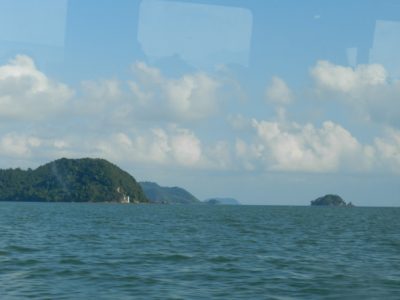Island habitats can be found all over the world and can either be the result of land breaking away from large land masses, or islands can be the result of volcanoes erupting on the sea floor. Due to their generally isolated nature, the wildlife on islands often results in animals being unique in both their appearance and behaviour.
Due to the fact that islands are found all over the world, numerous different habitats can be found upon them including rainforests, deserts, swamps and tundra. However, due to the fact that island habitats are often isolated from other land habitats, animal species that are found inhabiting islands are often very different to their counterparts found in mainland habitats. Island habitats can even cause some animal species to develop completely separately from animal species in the rest of the world.
New Zealand is thought to have broken away from Australia when the continents broke-up millions of years ago, which has led to animal species being found on New Zealand and no-where else in the world. Flightless birds such as the kiwi and the kakapo, adapted to a flightless lifestyle as there were no large predators on the islands to try and escape from. However, these adaptations have had devastating consequences for these bird species as humans moved in bringing predators such as stoats and cats with them, which almost completely wiped out the kakapo population.
Due to the fact that island habitats are limited in size and resources, island ecosystems are fragile and easily disturbed by introducing new species and general human activity. Island animals can quickly become endangered or even completely extinct if their habitat is destroyed or what they eat disappears, as there is nowhere else for them to go. The kakapo and the tuatara both from New Zealand, have been among the most affected island animals, both of which are severely endangered and very close to becoming extinct as a species.
Other island animals that are found nowhere else in the world, include the lemurs found on the island of Madagascar, the kiwi found on New Zealand, the tree kangaroo found in Papua New Guinea and the orang-utan which is found on the Indonesian islands of Borneo and Sumatra. Orang-utans have been particularly affected by human activity as mass deforestation is under way in south-east Asia in order to make room for palm oil plantations, meaning that numerous orang-utans loose their homes and many are even captured by plantation owners and workers to sell into the exotic (and illegal) pet trade.
The conservation of island habitats has now reached breaking point as more care is having to be taken over the habitats of the animals that exist on islands. The kakapo can no longer be found on mainland New Zealand, as they have been isolated on nearby Codfish island in order to try to protect and conserve one of the world’s rarest birds. Money made from eco-tourism on places like the Galapagos Islands also helps to fund conservation projects to protect the native wildlife.
Read about:
- the most expensive islands in the world.
- the smallest islands in the world.
- how many islands are in the world.
- the largest uninhabited islands in the world.
- the most secluded places on earth.








